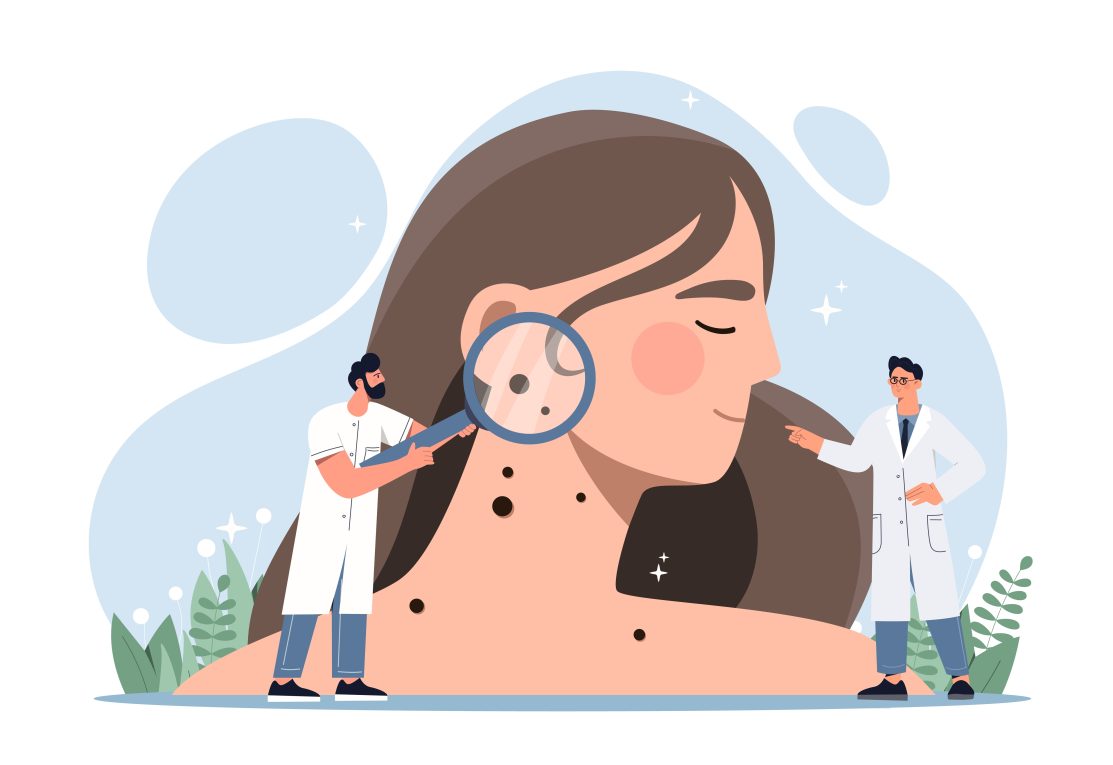Skin cancer develops from abnormal skin cells that are often triggered by prolonged exposure to UV radiation from the sun or tanning beds. There are various types of skin cancer:
1. Basal cell carcinoma (BCC) – It is common type of skin cancer. BCCs typically appear as a small, raised, waxy bump or scar-like area on the skin.
2. Squamous cell carcinoma (SCC) – The second most common type. SCCs often appear as a firm, red nodule or as a flat, scaly patch on the skin.
3. Melanoma – It is a serious type of skin cancer. Melanomas can develop from an existing mole or appear as a new abnormal growth on the skin. They are often irregularly shaped and multicolored.
Skin cancer can occur anywhere on the body, but it’s most common in areas that get the most sun exposure, like the face, neck, hands, and arms. Risk factors include fair skin, excessive UV exposure, having many moles, a family history of skin cancer, and a weakened immune system.
Tips to help prevent skin cancer:
1. Avoid excessive sun exposure: It’s important to limit your time in the sun, especially between 10 am and 4 pm when UV rays are strongest. Seek shade whenever possible.
2. Use sunscreen: Use a broad-spectrum sunscreen with an SPF of 30 or more to all exposed skin 15-30 minutes before going outdoors. Re-apply it every 2 hours or more frequently if you are swimming or sweating.
3. Wear protective clothing: Cover up with lightweight, long-sleeved shirts, pants, hats, and sunglasses when in the sun.
4. Check your skin regularly: Perform regular self-exams to check for new or changing moles, freckles, or spots. Report any suspicious changes to your dermatologist.
5. Avoid tanning beds and sun lamps: These artificial UV sources can increase your risk of skin cancer.
6. Be extra careful with children: Children skin is more sensitive and vulnerable to sun damage. Keep infants below 6 months out of direct sunlight.
7. Know your skin type: People with many moles, fair skin or a family history of skin cancer are at higher risk and should take extra precautions.
Maintaining good sun protection habits can significantly reduce your risk of developing skin cancer. Regularly examining your skin and getting professional skin checks can also help with early detection.

